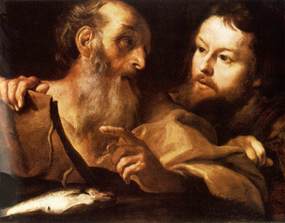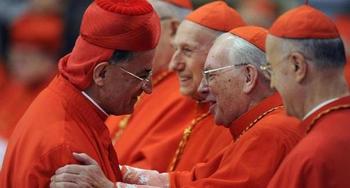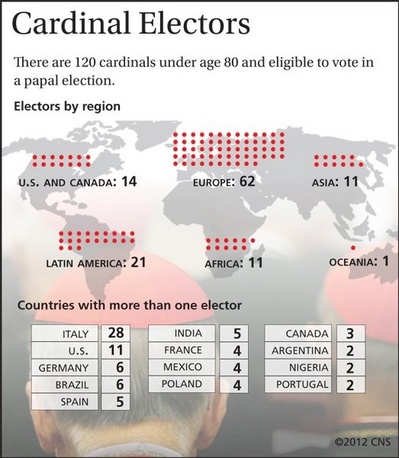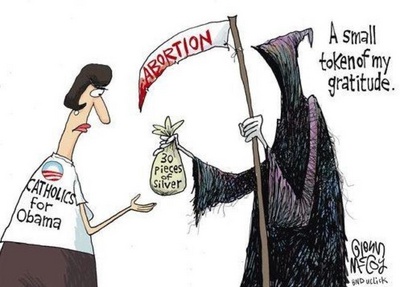Real Christian discipleship rejects and resists the kind of radical personal license and acquisitiveness that animates a consumerist society. So when the Catholic Church teaches about the dignity of the unborn child, the purpose of human sexuality, economic and immigration justice, the rights of religious communities and believers, and the nature of marriage and the family - she's not just "unpopular." She's hated as the enemy of individual privacy and personal freedom. And that theme shapes the way the Church is treated in the mass media.For Catholics in my country to recover their vocation as a Church, they need to be awakened; they need a reason to be zealous again about their faith. They need to hear the witness of people like yourselves who live the Catholic faith with confidence and joy. They need to see their Church growing and fruitful, and young again, instead of constantly retreating and in decline.This is the value of the new ecclesial communities and movements. They're alive in Jesus Christ, and their new life and energy spill out into the whole Church.
November 2012 Archives
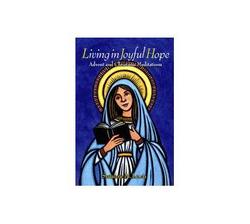
During Advent and Christmas we await and celebrate the birth of Christ in order to tune our hearts to await and celebrate the fulfillment of God's "plan for the fullness of time, together up all things in Christ, things in heaven and things on earth." Ephesians 1:10. What better way to tune our hearts than by listening, with great care and attention to the work of God?
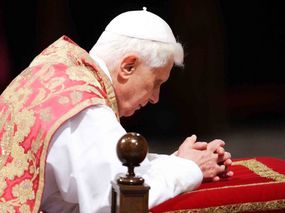 The December prayer intentions of the Pope have us praying for migrants and for the Light of the Incarnation to radiate from our own faces as witnesses to someone greater than ourselves. These are particularly poignant set of prayer intentions for us in the USA: we are a nation of immigrants; we are a City set on a hill. Our solidarity in prayer if not in other concrete ways ought to remind us of our roots.
The December prayer intentions of the Pope have us praying for migrants and for the Light of the Incarnation to radiate from our own faces as witnesses to someone greater than ourselves. These are particularly poignant set of prayer intentions for us in the USA: we are a nation of immigrants; we are a City set on a hill. Our solidarity in prayer if not in other concrete ways ought to remind us of our roots.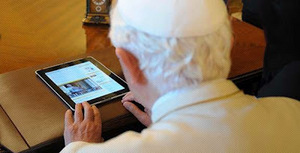 The Pope will tweet. Is this a mortal sin or a gospel value?
The Pope will tweet. Is this a mortal sin or a gospel value?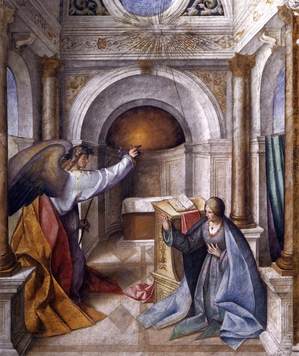
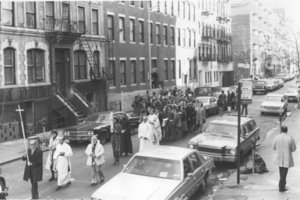 Today is the 32nd anniversary of death of the Servant of God Dorothy Day. The Benedictine Oblate from Brooklyn Heights, NY, who is remembered for her conversion to Christ and His Church and with Peter Maurin founded The Catholic Worker Movement.
Today is the 32nd anniversary of death of the Servant of God Dorothy Day. The Benedictine Oblate from Brooklyn Heights, NY, who is remembered for her conversion to Christ and His Church and with Peter Maurin founded The Catholic Worker Movement.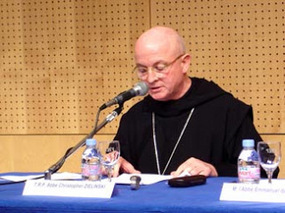 The Pope appointed Benedictine Abbot Christopher Michael John Zielinski to the be the Head of the Office (office manager) of the Congregation for Divine Worship and the Discipline of the Sacraments on Saturday, 24 November 2012. He is the number 3 person in the Congregation serving with Antonio Cardinal Cañizares, Archbishop Arthur Roche and Father Anthony Ward, SM.
The Pope appointed Benedictine Abbot Christopher Michael John Zielinski to the be the Head of the Office (office manager) of the Congregation for Divine Worship and the Discipline of the Sacraments on Saturday, 24 November 2012. He is the number 3 person in the Congregation serving with Antonio Cardinal Cañizares, Archbishop Arthur Roche and Father Anthony Ward, SM.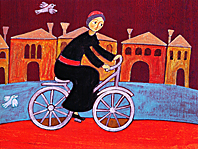 Many of us only know the name Albino Luciani. He was the one who became Pope John Paul I in 1978 and lived only 33 days as the Supreme Pontiff. That was 34 years ago; I was only 9 when the smiling pope appeared and then departed. I often think of what the face of the Church would've been like had he lived longer.
Many of us only know the name Albino Luciani. He was the one who became Pope John Paul I in 1978 and lived only 33 days as the Supreme Pontiff. That was 34 years ago; I was only 9 when the smiling pope appeared and then departed. I often think of what the face of the Church would've been like had he lived longer.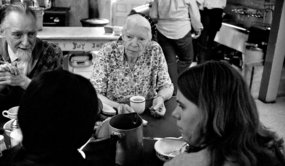 Dorothy Day is not a pawn in political camps. She is the darling of a political camp for either the seculars or the ecclesials. To apply political monikers of liberal and conservative, left or right is grossly inaccurate and a rather reductionistic manner to understand a person and her vocation, the vocation defined by love and happiness. True to an authentic follower of Christ, Dorothy Day's vocation was to be a saint, that is singularly focussed on her Lord and Savior; her vocation was to adore and follow Jesus Christ. Day's vocation was not to feed the the poor and argue for a change in governmental policy. As a friend said, Day's life is too easily "framed in political terms by people who anachronistically use words like 'liberal' and 'conservative' to describe a life that was never about that fight." Additionally, I fully agree with Martha Hennessy, 57, the granddaughter of Day who said she was uncomfortable about her grandmother's abortion. Let's pay attention to Martha Hennessy, "I wish we would focus on the birth of her child more than on her abortion because that's what really played a role in her conversion." Indeed. This is the pro-life position of the Church.
Dorothy Day is not a pawn in political camps. She is the darling of a political camp for either the seculars or the ecclesials. To apply political monikers of liberal and conservative, left or right is grossly inaccurate and a rather reductionistic manner to understand a person and her vocation, the vocation defined by love and happiness. True to an authentic follower of Christ, Dorothy Day's vocation was to be a saint, that is singularly focussed on her Lord and Savior; her vocation was to adore and follow Jesus Christ. Day's vocation was not to feed the the poor and argue for a change in governmental policy. As a friend said, Day's life is too easily "framed in political terms by people who anachronistically use words like 'liberal' and 'conservative' to describe a life that was never about that fight." Additionally, I fully agree with Martha Hennessy, 57, the granddaughter of Day who said she was uncomfortable about her grandmother's abortion. Let's pay attention to Martha Hennessy, "I wish we would focus on the birth of her child more than on her abortion because that's what really played a role in her conversion." Indeed. This is the pro-life position of the Church.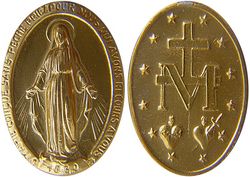 The feast of the Miraculous Medal may be surprising to a few. Catholics honor buildings, theological ideas, people and medals. The Miraculous Medal is known as the Medal of the Immaculate Conception, the medal that Our Lady on this date in 1830 instructed Saint Catherine Labouré to have struck. There is nothing miraculous about the medal. What is miraculous is the fact that it is a sign that God does miraculous things in our lives. In a boring world there are events that turn reality on end.
The feast of the Miraculous Medal may be surprising to a few. Catholics honor buildings, theological ideas, people and medals. The Miraculous Medal is known as the Medal of the Immaculate Conception, the medal that Our Lady on this date in 1830 instructed Saint Catherine Labouré to have struck. There is nothing miraculous about the medal. What is miraculous is the fact that it is a sign that God does miraculous things in our lives. In a boring world there are events that turn reality on end.- The five areas a good school of theology needs to be attentive to: sacred Scripture, sacred Liturgy, patristic study, dogmatic study and ethics. I fully believe that Prosper of Aquataine is correct, and ought to orient all study of theology: legem credendi lex statuat supplicandi. In shorthand, the law of prayer is the law of belief.
Conversion advances the Kingdom of God. There is no possibility of entering the Kingdom prepared and promised to us without turning away from sin and truly walking on the path given by the Lord. AND this Kingdom is totally other than what we known and expect. And because of our baptism our vocation is to build the Kingdom according to a plan that is not our own. At the Mass offered by the Pope on the Solemnity of Our Lord Jesus Christ, King of the Universe, he did so with the six cardinals and their friends and family. The homily follows.
Today's Solemnity of Christ, King of the Universe, the crowning of the liturgical year, is enriched by our reception into the College of Cardinals of six new members whom, following tradition, I have invited to celebrate the Eucharist with me this morning. I greet each of them most cordially and I thank Cardinal James Michael Harvey for the gracious words which he addressed to me in the name of all. I greet the other Cardinals and Bishops present, as well as the distinguished civil Authorities, Ambassadors, priests, religious and all the faithful, especially those coming from the Dioceses entrusted to the pastoral care of the new Cardinals.In this final Sunday of the liturgical year, the Church invites us to celebrate the Lord Jesus as King of the Universe. She calls us to look to the future, or more properly into the depths, to the ultimate goal of history, which will be the definitive and eternal kingdom of Christ. He was with the Father in the beginning, when the world was created, and he will fully manifest his lordship at the end of time, when he will judge all mankind. Today's three readings speak to us of this kingdom. In the Gospel passage which we have just heard, drawn from the account of Saint John, Jesus appears in humiliating circumstances - he stands accused - before the might of Rome. He had been arrested, insulted, mocked, and now his enemies hope to obtain his condemnation to death by crucifixion. They had presented him to Pilate as one who sought political power, as the self-proclaimed King of the Jews. The Roman procurator conducts his enquiry and asks Jesus: "Are you the King of the Jews?" (Jn 18:33). In reply to this question, Jesus clarifies the nature of his kingship and his messiahship itself, which is no worldly power but a love which serves. He states that his kingdom is in no way to be confused with a political reign: "My kingship is not of this world ... is not from the world" (v. 36).
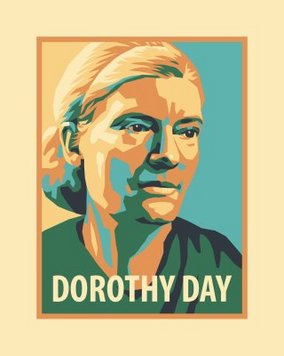 There are some among the Christian faithful who would prefer not to spend resources, personal and financial, on the sainthood investigation of the Servant of God Dorothy Day. As we know the US bishops have recently given their approval for the process to move forward. The for Day's cause for canonization is being promoted by the Archdiocese of New York; Cardinal Timothy Dolan is a very strong supporter, as is Cardinal Francis George among others.
There are some among the Christian faithful who would prefer not to spend resources, personal and financial, on the sainthood investigation of the Servant of God Dorothy Day. As we know the US bishops have recently given their approval for the process to move forward. The for Day's cause for canonization is being promoted by the Archdiocese of New York; Cardinal Timothy Dolan is a very strong supporter, as is Cardinal Francis George among others. 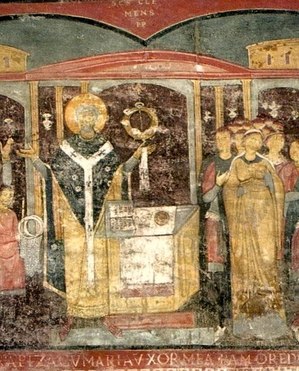
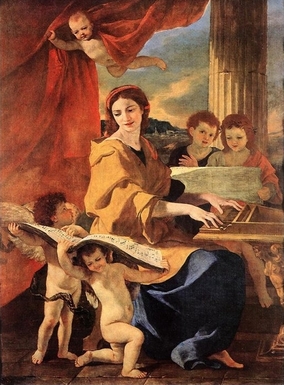 O God, who gladden us each year with the feast day of your handmaid Saint Cecilia, grant we pray, that what has been devoutly handed concerning her may offer us examples to imitate and proclaim the wonders worked in his servants by Christ your Son.
O God, who gladden us each year with the feast day of your handmaid Saint Cecilia, grant we pray, that what has been devoutly handed concerning her may offer us examples to imitate and proclaim the wonders worked in his servants by Christ your Son.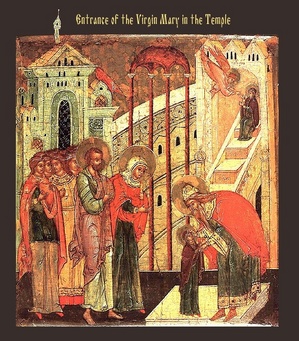 The liturgical memorial celebrated today is an odd feast for some in the West: The Presentation of the Blessed Virgin Mary; in the Byzantine East it's sometimes referred to as the Entrance of the Virgin in the Temple. A slight difference with no real distinction.
The liturgical memorial celebrated today is an odd feast for some in the West: The Presentation of the Blessed Virgin Mary; in the Byzantine East it's sometimes referred to as the Entrance of the Virgin in the Temple. A slight difference with no real distinction.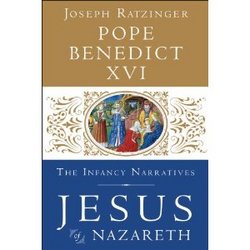 The third and final volume of Joseph Ratzinger's bestselling idea on Jesus of Nazareth was generally released today. In the USA it will be released on December 4. The Infancy Narrative (Random House, 2012) is available on Amazon with real good pre-order discount.
The third and final volume of Joseph Ratzinger's bestselling idea on Jesus of Nazareth was generally released today. In the USA it will be released on December 4. The Infancy Narrative (Random House, 2012) is available on Amazon with real good pre-order discount. 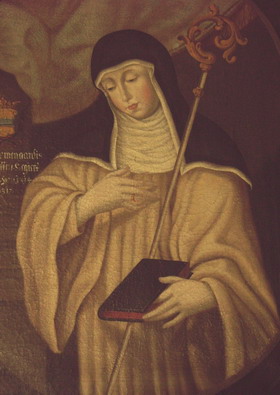 The Church celebrates two Benedictine friends in several days: Saints Mechtilde and Gertrude. By today's standards of canonizations, neither were formally canonized by the Church; until recently Hildegard enjoyed a canonization status only observed in Benedictine communities. Her liturgical observance is recognized more universally today. Pope Benedict XVI spoke eloquently of Saint Mechtilde of Hackeborn at a 2010 Wednesday Office. The Pope gives a superb insight into the person of Saint Mechtilde that is extraordinarily helpful.
The Church celebrates two Benedictine friends in several days: Saints Mechtilde and Gertrude. By today's standards of canonizations, neither were formally canonized by the Church; until recently Hildegard enjoyed a canonization status only observed in Benedictine communities. Her liturgical observance is recognized more universally today. Pope Benedict XVI spoke eloquently of Saint Mechtilde of Hackeborn at a 2010 Wednesday Office. The Pope gives a superb insight into the person of Saint Mechtilde that is extraordinarily helpful.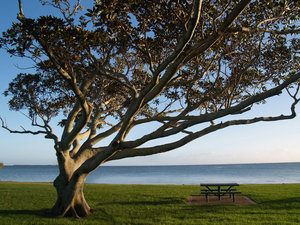 My neighbor has several fig trees. His children are now in the process of wrapping them up for the winter --New England is not an agreeable place to raise fig trees all year.
My neighbor has several fig trees. His children are now in the process of wrapping them up for the winter --New England is not an agreeable place to raise fig trees all year.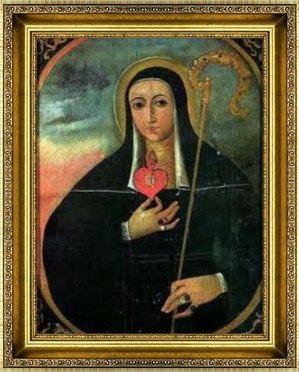
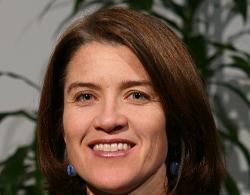 Alexia Kelly is the new president of a prominent Catholic fundraising office in Dupont Circle, Washington, DC.
Alexia Kelly is the new president of a prominent Catholic fundraising office in Dupont Circle, Washington, DC. 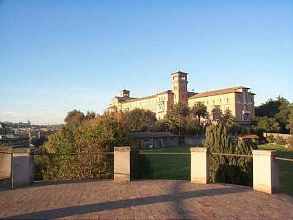
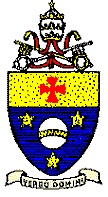 lYou're likely going to say big deal... there's already been too much info on the 2012 Congress of Abbots on the Communio blog. Well, you're correct. But a few statistics set a context.
lYou're likely going to say big deal... there's already been too much info on the 2012 Congress of Abbots on the Communio blog. Well, you're correct. But a few statistics set a context.- 250 abbots
- 380 monasteries represented: 205 abbeys, 45 independent priories, 130 dependent priories
- 21 Benedictine Congregations of monks
- 7,358 monks represented
- 62 Benedictine Congregations of women
- 13,650 Benedictine nuns and sisters represented.
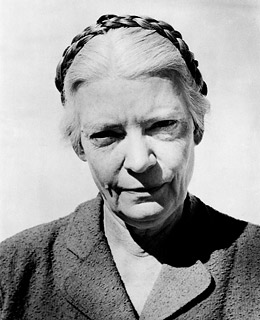 The canonization process of the Servant of God Dorothy
Day (1897-1980) the US Conference of Catholic Bishops (USCCB) by an unanimous voice vote on
November 13, 2012 at the annual meeting of the bishops.
The canonization process of the Servant of God Dorothy
Day (1897-1980) the US Conference of Catholic Bishops (USCCB) by an unanimous voice vote on
November 13, 2012 at the annual meeting of the bishops.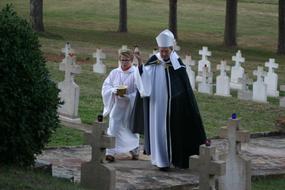
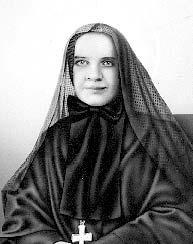 Mother Frances Cabrini, the first US citizen to be canonized by the Church spent a night with the
Benedictine sisters at Mount Saint Scholastica in Atchison, Kansas.
Mother Frances Cabrini, the first US citizen to be canonized by the Church spent a night with the
Benedictine sisters at Mount Saint Scholastica in Atchison, Kansas. The front page of today's New Haven Register carried an article by Jordan Fenster, "Right-to-die bill may be discussed by legislature" by which the citizens of Connecticut were alerted to the possibility that in the next session of the legislature the question of assisted suicide will be on the table. Following the defeat of Massachusetts ballot on the same subject last week, the contagion is now again flowing south. Already three US states, Oregon, Montana and Washington, allow for physician assisted suicide. 34 states prohibit lethal doses of medication that would end human life.
Let me say from the outset, this is not a Catholic issue. Persons of belief and unbelief ought to be concerned about the potential passing of a law that legalizes medically induced suicide. Hence, this is not a conservative issue. This is not a an anti-human dignity issue. It is just the opposite: this is a human issue. Who we are a human beings, and how we teach each other is a human issue that is informed by what we believe and how we behave. Committing this legislative error is a problem of education. Recall that in the past when a similar bill was brought to the CT voters it failed only 51-49%.
Several weeks ago there appeared in the New York Times an intriguing OP-ED article that I believe we need to seriously consider in the discussion of physician assisted suicide. Considering voices that differ from ours need to be thoughtfully taken into account because we are people use who reason to frame our moral lives. We can't simply dismiss the other and therefore I appeal to people of belief and unbelief to reasonably discuss what's at stake. When we rush the discuss without fact we always get burned.
In my opinion not enough attention has been devoted to considering how this legislation has been lived out in this country and in others, nor have we considered the philosophical, theological, sociological and human consequences of such an act. Most often our heart-strings are pulled, even stretched leading us to decide weighty matters without due attention to the reality in front of us --to the person and people and intimately connected with life and death issues. We also don't always adequately consider the eternal consequences of killing someone before natural death happens.
Who's life are we "making dignified" by engaging death before it's naturally presented? What really is human dignity? What does it mean to be truly a man or a woman in relationship with other men and women here-and-now, and following death? To what extent does fear, anxiety and perceived suffering dictate how we think and act toward others? Are we sufficiently aware of and sensitive to the difference between ideology and being a person, no matter how debilitated?
Here is Ben Mattlin's October 31, 2012 New York Times article published online.
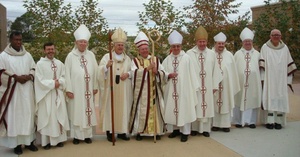 The Nortbertine Order is not that well known in the USA, though it is a venerable way of living one's vocation: canons praying the Divine Office, living together in community, and being apostolically engaged in the local Church.
The Nortbertine Order is not that well known in the USA, though it is a venerable way of living one's vocation: canons praying the Divine Office, living together in community, and being apostolically engaged in the local Church. 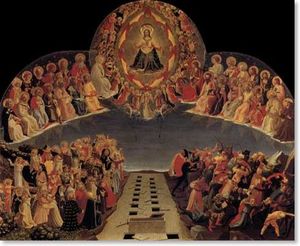 Today is the liturgical observance of Benedictine All Saints. Let's pray for all those monks, nuns, sisters and oblates who lived a life of holiness and perseverance in the monastic life.
Today is the liturgical observance of Benedictine All Saints. Let's pray for all those monks, nuns, sisters and oblates who lived a life of holiness and perseverance in the monastic life.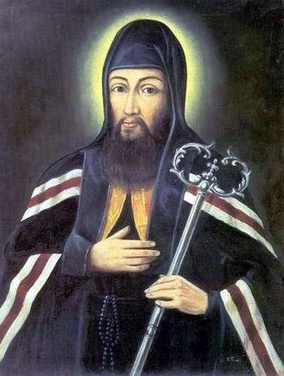 Today, with the feast of Saint Josaphat (c. 1580-1623), we ought to mourn the sad division of the Church that exists between East and West.
Today, with the feast of Saint Josaphat (c. 1580-1623), we ought to mourn the sad division of the Church that exists between East and West.The USCCB President Timothy Cardinal Dolan began his address saying that we need to attend to "First things first: we are first believers in Christ: the way, the truth and the life...We need to recall that the Lord said, "Seek first the Kingdom of God": it is God who first engages us..."
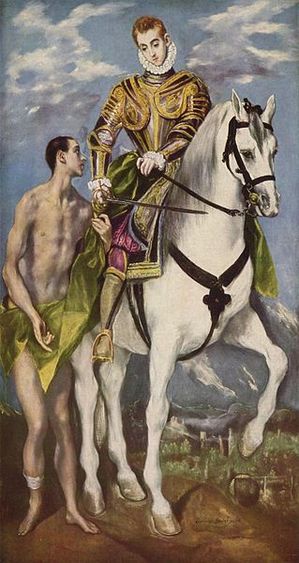
Sundays are not days on which the Church observes the liturgical memorial of saints. It happens periodically, but today's feast of Saint Martin of Tours (AD 316-397) is not one them, at least not in the USA. Perhaps in Tours where the saint lived there is a festive celebration of Martin, I am uncertain of such. But that today is Veterans' Day here and that the liturgical calendar recalls Martin, it seems silly not to think of this most famous saint as we pray for Veterans.
The Church prays,
O God, who are glorified in the Bishop Saint Martin both by his life and death, make new, we pray, the wonders of your grace in our hearts, that neither death nor life may separate us from your love.
Martin was widely honored for his holiness and witness to Jesus Christ; through his intercession God performed many miracles and many came to Christian faith. It is said that saints beget saints. Martin was a disciple of the famed Saint Hilary of Poitiers and Saint Lidorius desired that Martin succeed him as bishop of Tours and his successors were Saint Britius and Saint Perpetuus; and Saint Benedict had a significant devotion to Martin.
One of the famous stories of Martin is the one of the cloak. As the narrative goes, Martin was approaching Amiens meeting a poorly attired beggar who was obviously in need: cold, hungry and homeless. That he was a virtuous man, Martin cut his cloak in half and gave half to the beggar. That night, in a dream, Jesus appeared to Martin wearing the cloak given to the "beggar." As Martin recounted, he heard Jesus say to the angels: "Here is Martin, the Roman soldier who is not baptized [a catechumen] and has clad me" (Sulpicius Severus, ch 2). One version of the story tells of the cloak being restored in full to Martin.
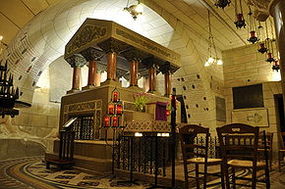
A friend of Saint Martin, Sulpicius Severus wrote in his Vita of Martin that,
The body being laid out in public was being honored by the last sad offices on the part of the mourning brethren, when Martin hurries up to them with tears and lamentations. But then laying hold; as it were, of the Holy Spirit, with the whole powers of his mind, he orders the others to quit the cell in which the body was lying; and bolting the door, he stretches himself at full length on the dead limbs of the departed brother. Having given himself for some time to earnest prayer, and perceiving by means of the Spirit of God that power was present, he then rose up for a little, and gazing on the countenance of the deceased, he waited without misgiving for the result of his prayer and of the mercy of the Lord. And scarcely had the space of two hours elapsed, when he saw the dead man begin to move a little in all his members, and to tremble with his eyes opened for the practice of sight. Then indeed, turning to the Lord with a loud voice and giving thanks, he filled the cell with his ejaculations.
Saint Martin is not only the patron saint for the military but he's also asked to intercede for those battling alcoholism.
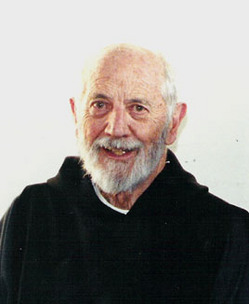 The second and longtime Prior of Mount Saviour Monastery, Father Martin Thomas Boler will be laid to rest today.
The second and longtime Prior of Mount Saviour Monastery, Father Martin Thomas Boler will be laid to rest today.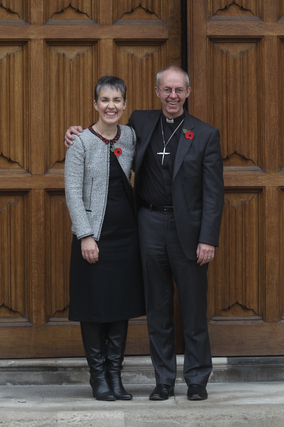 The 77 million Anglican Church has a new Archbishop of Canterbury with the appointment of Bishop Justin Welby, 57, as the 105th Ordinary of Canterbury, and successor of Saint Augustine. He was joined by his wife Caroline and his family, including he two-month old grand-daughter.
The 77 million Anglican Church has a new Archbishop of Canterbury with the appointment of Bishop Justin Welby, 57, as the 105th Ordinary of Canterbury, and successor of Saint Augustine. He was joined by his wife Caroline and his family, including he two-month old grand-daughter. Tommaso Spinelli, 23, a catechist of young catechumens who
works at the Catechetical Office of the Diocese of Rome, has some good things to say:
Tommaso Spinelli, 23, a catechist of young catechumens who
works at the Catechetical Office of the Diocese of Rome, has some good things to say:The new evangelization needs substance: it needs catechesis of a certain depth that is able to say something serious to our lives, but also and above all it needs lives of substance that demonstrate through actions the solidity of the Christian. It is even more important today, now that families are disunited and often abdicate their educative role, that priests demonstrate to the young their faithfulness to a vocation and the possibility of choosing an alternative way of living, better than that proposed by society.My concern however is that these figures of substance are becoming a minority. The priest has lost trust in the importance of his ministry, he has lost charisma and culture. I see priests who adapt to the dominant thought. The same is true of the liturgy, which in the attempt to become original becomes meaningless. Priests, I ask you to find the courage to be yourselves. Do not fear because where you are truly priests, there you propose the truth of the faith without fear, we the young will follow. Indeed, the words of Peter are also ours: "Lord, to whom shall we go? You have the message of eternal life". And we are infinitely hungry for something eternal and true.I therefore propose:
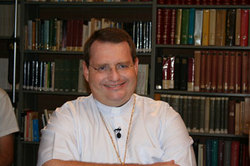
The Cambodian Catholic experience is not something that rolls off our lips at cocktail parties or lunch dates in the USA. But the Asian perspective is needed: how does the Good News get rooted. Notice his points at the end of the post.
The rather young bishop, The Most Reverend Olivier Michel Marie Schmitthaeusler, MEP, 42, vicar apostolic of Phnom Penh, Cambodia since 2010 told the Pope and the Synod:
The Khmer Rouge genocide killed bishops, priests, religious persons and the majority of Christians. For twenty years now, we are living a new time of the Acts of the Apostles with a first announcement of the Good News ensured by the small group of survivors, supported by the massive arrival of missionaries. Today we have about 200 adult baptisms each year... The small Church of Cambodia is in some ways a laboratory for evangelization in a Buddhist world, fully entered into a process of secularization driven by globalization a bit like the Asian dragons. The Ad Extra Mission is intimately tied to the Ad Intra Mission. Ad Extra and Ad Intra are mutually enriched by stimulating each other with the same and unique Mission of Evangelization!
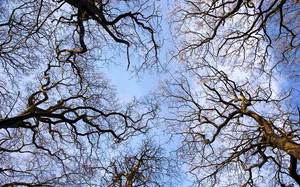 To celebrate faith and culture in this Year of Faith, Rita A. Simmonds, a friend, is reading her poetry in a program Versed in Prayer, at St. Malachy's-The Actors' Chapel in NYC on 28 November 2012, 7pm.
To celebrate faith and culture in this Year of Faith, Rita A. Simmonds, a friend, is reading her poetry in a program Versed in Prayer, at St. Malachy's-The Actors' Chapel in NYC on 28 November 2012, 7pm.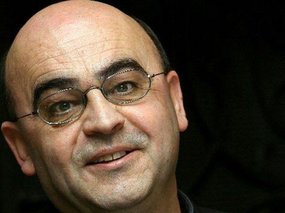 At the Synod of Bishops men and women from all parts of the world gathered in Rome in October to speak on matters pertaining to evangelization. We in the USA, need perspective: the lower Europe and North America is not the only place where the Christian faith is incarnated. The bishop of Tromso since 2009,
Norway, Berislav Grgić, 52, said to the Synod Fathers:
At the Synod of Bishops men and women from all parts of the world gathered in Rome in October to speak on matters pertaining to evangelization. We in the USA, need perspective: the lower Europe and North America is not the only place where the Christian faith is incarnated. The bishop of Tromso since 2009,
Norway, Berislav Grgić, 52, said to the Synod Fathers:The Catholic Church in the Northern Lands - Denmark, Finland, Iceland, Norway and Sweden - is a very small minority and therefore has neither the advantages nor the disadvantages that the Catholic Church often comes across in traditional and prevalently Catholic regions. Despite its limited relevance, numeric as well as social, our Church is nonetheless a growing Church. New churches are built or bought, new parishes are instituted, non-Latin rites are added, there is a relatively high number of adult conversions and baptisms, there are vocations to priesthood and to religious life, the number of baptisms is much higher than the number of deaths and number of those who abandon the Church, and attendance at Sunday Mass is relatively high.
Hearing the call to conversion that came from the synod hall, I could not help but remember the call that Fr. Giussani issued many years ago in Viterbo, inviting us to "recover the truth of our vocation and our commitment." Because we, too, he told us, run the risk of "reducing our commitment too a kind of theorization of a socio-pedagogical method, reducing it to a kind of activism that follows upon this theorization, and then a commitment to the political defense of it. Instead, our task is to reaffirm and to propose to man, our brother, a fact of life.
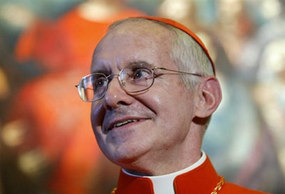 In the time following the Synod of Bishops on the New Evangelization I think we need to review what was said. So often we move on so fast when an event is finished. A judgment, that is, an assessment, is required to understand with clarity and charity.
In the time following the Synod of Bishops on the New Evangelization I think we need to review what was said. So often we move on so fast when an event is finished. A judgment, that is, an assessment, is required to understand with clarity and charity. Christians often ignorant of the content of their own faith and incapable because of this of living of and for it, are not capable of interreligious dialogue that always begins with the assertion of one's own convictions: there is no room for syncretism or relativism! Faced with adepts from other religions with a strong religious identity, it is necessary to present motivated and doctrinally equipped Christians. This makes the new evangelization a priority to form coherent Christians, capable of demonstrating their faith, with simple words and without fear.
Being really Catholic opens one's point of view to a great richness of the entire Church, East and West; being Catholic as John Paul II reminded us, is to breath with both lungs to invigorate the whole body. Most often Latin Catholics are too skeptical, too closed-minded to look beyond their parochial understanding of God and Church.
Each Sunday Jesuit Father Steve Bonian, a Maronite Catholic American priest reflects on the liturgical theology of his church. If you done a little reading in the liturgical history of the Church you will recall with joy that the Maronites have an incredibly rich liturgical tradition that ought to be appreciated more. For one thing the Maronite Liturgy is wonderfully Semitic in its pattern of prayer.
The Maronite Church, the majority of Catholics from Lebanon, celebrated yesterday the Sunday of the Consecration of the Church. The Roman Church does not have an equivalent liturgical observance, unless you make a connection with the Christ the King Sunday, the final Sunday of the Roman Church's year. The Maronite liturgical theology for the Sunday of the Consecration of the Church you note that "the Bride-Church re-consecrates herself and her children, the faithful, to Christ."
Father Bonian writes,
The letter to the Hebrews reminds us that the Temple in Jerusalem and it's rituals was only a temporal preparation for the "new order" that would be established between Christ and his Church and her children.
From now on the Children of God would worship him in Spirit and Truth on earth as in the Heavenly Jerusalem. For it is not God's will to dwell among stones, but in the caring hearts of his faithful people, and among them to establish his Kingdom. Our Church Community is this New Temple!
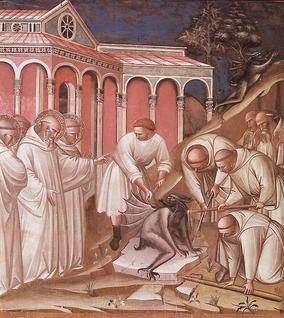 The Church is not monolithic: let's consider the various observances of feasts of All Saints and the Commemoration of the Faithful Departed (All Souls):
The Church is not monolithic: let's consider the various observances of feasts of All Saints and the Commemoration of the Faithful Departed (All Souls):- November 5: the Society of Jesus
- November 7: the Order of Preachers
- November 13: the Order of St Benedict; Order of St Augustine; the Trinitarian Order
- November 29: the Franciscan Families
- October 5: the Capuchin Order
- November 5: the Franciscan Families
- November 8: the Order of Preachers
- November 13: the Carthusians
- November 14: the Order of St Benedict; the Trinitarian Order
- November 15: the Order of Carmel
- November 16: the Servite Order
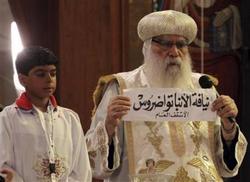 The electors, nearly 2,406 people, in the Coptic Orthodox Church selected the 118th successor to Saint Mark, Tawadros II. The new pope is the head of the Coptic Orthodox Church of Alexandria and Patriarch of All Africa. Until now, Tawadros has been an auxiliary bishop to the Archbishop Pachomius who's been serving as the acting pope. Tawadros studied pharmaceutical sciences and was ordained a bishop in 1997.
The electors, nearly 2,406 people, in the Coptic Orthodox Church selected the 118th successor to Saint Mark, Tawadros II. The new pope is the head of the Coptic Orthodox Church of Alexandria and Patriarch of All Africa. Until now, Tawadros has been an auxiliary bishop to the Archbishop Pachomius who's been serving as the acting pope. Tawadros studied pharmaceutical sciences and was ordained a bishop in 1997. 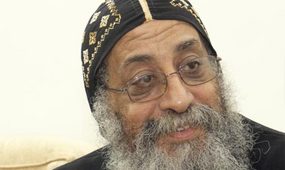
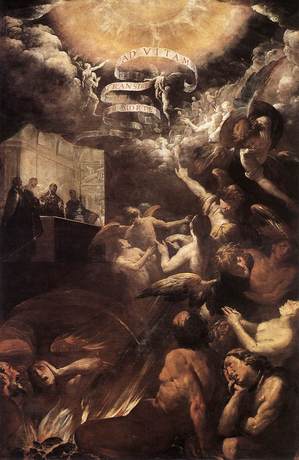
The month of November is the Month of the Holy Souls in Purgatory. I was thinking after a funeral celebrated earlier today for a friend, Jack, who died last Saturday, about my on-going responsibility for the souls in purgatory. This after being reminded that I am called, as are all the baptized, to be an echo of the encounter with Christ in this world, but also in eternal life. What I do here and now has a direct consequence in the later in the promised Destiny with the Savior.
Is it a matter of saying the Lord's Prayer, Hail Mary and the Glory Be with the Eternal Rest prayers around the time of a person's death, or only on the anniversary of death of a loved one or friend? Somehow I doubt it.
The
law of charity that I think Christians are called to live with certainty makes
a claim on us to pray for the dead and dedicate some portion of prayer, fasting
and almsgiving for the Church Suffering (the Holy Souls) so that one day they
become part of the Church Triumphant. Being Friends in the Lord (disciples of
Christ) can't be indifferent to those who have died. We believe that the bonds
of love don't unravel with the death of the body. We promise the dying that we
won't forget them. If this is true, then why do we so often forget to have a
Mass offered for their intentions, or say a rosary for our loved ones, or
absent ourselves from visiting the cemetery? Mass, the rosary and a visit are
concrete acts of love that have a real consequence for real people we knew and
loved in this life.
Consider the image of posted above is a example of spiritual works effecting the soul of another. Here the Baroque Master Giovanni Battista Crespi, "Il Cerano" (1573-1632) paints in 1617 Saint Gregory the Great "delivering the soul of a monk." The deliverance is the result of the monk and pope Gregory offering Mass for the soul of a monk. The depths of mercy and love are mined by the devotion of the Mass for another.
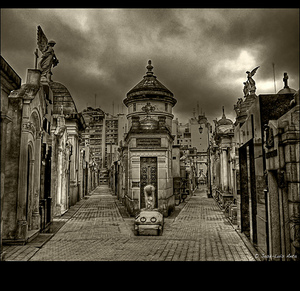
For more than a 1000 years Holy Church has remembered all the dead on one day and reminding the faithful what we believe in the death and resurrection of Jesus and thus for those who die in grace. Spend some time with the Mass Collect below. It is not merely remembering the dead, as good as it is, but also to hold fast to the faith we are Baptized into: Christ's death and resurrection.
As a way of entering into what the Lord desires, the Church formed the All Souls Indulgence. Read about it here. You have until November 8 to observe the conditions of the Indulgence.
God, who has raised Jesus from the dead, will give life also to your mortal bodies, through his Spirit that dwells in you.
With the Church we pray,
O God, who willed that your Only Begotten Son, having conquered death, should pass over into the realm of heaven, grant, we pray, to your departed servants that, with the mortality of this life overcome, they may gaze eternally on you, their Creator and Redeemer.
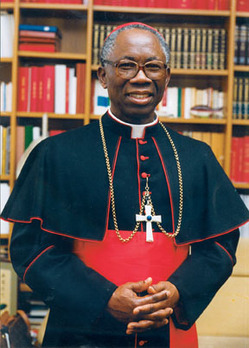 His Eminence, Francis Cardinal Arinze, turns 80 today.
His Eminence, Francis Cardinal Arinze, turns 80 today. - Ordained priest: 23 November 1958 (54 yrs)
- Ordained bishop: 29 August 1965 (47 yrs)
- Created cardinal: 25 May 1985 (27 yrs).
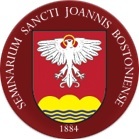 The heart of a diocese is a seminary (or a seminary program if a diocese doesn't have a major seminary formation program). No would have guessed 10 years following the sex abuse crisis erupted in the Archdiocese of Boston, that Saint John's Seminary would see new life in forming men to be Catholic priests. Patrick Doyle wrote a very descent article for the Boston Magazine titled "Resurrection" on the uptick of the call to priesthood and good work of the Boston seminary.
The heart of a diocese is a seminary (or a seminary program if a diocese doesn't have a major seminary formation program). No would have guessed 10 years following the sex abuse crisis erupted in the Archdiocese of Boston, that Saint John's Seminary would see new life in forming men to be Catholic priests. Patrick Doyle wrote a very descent article for the Boston Magazine titled "Resurrection" on the uptick of the call to priesthood and good work of the Boston seminary.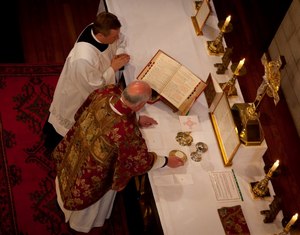 For Catholics it is Sunday, not the Sabbath (Saturday) in the technical sense as it applies to Jewish theology, but it is the day of worship of the One Triune God in the Triumph of death by death itself; it is Sunday which commemorates the Resurrection of Jesus, that is the fulfillment of the Paschal Mystery (life, death, Resurrection and Ascension of the Lord). Sunday is the perpetual Day of the Lord in practice.
For Catholics it is Sunday, not the Sabbath (Saturday) in the technical sense as it applies to Jewish theology, but it is the day of worship of the One Triune God in the Triumph of death by death itself; it is Sunday which commemorates the Resurrection of Jesus, that is the fulfillment of the Paschal Mystery (life, death, Resurrection and Ascension of the Lord). Sunday is the perpetual Day of the Lord in practice.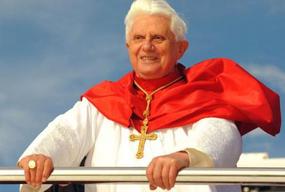 Praying with and for another expands our life, it gives us a new point of view. This is especially true when we unite ourselves in prayer with the monthly prayer intentions published by the Apostleship
of Prayer, and published here on the Communio blog on first day of the month.
Praying with and for another expands our life, it gives us a new point of view. This is especially true when we unite ourselves in prayer with the monthly prayer intentions published by the Apostleship
of Prayer, and published here on the Communio blog on first day of the month.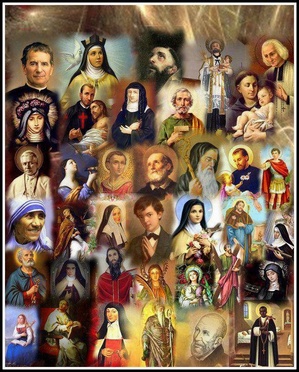 Let us all rejoice in the Lord, as we celebrate the feast day in honor of all the Saints, at whose festival the Angels rejoice and praise the Son of God. (Entrance Ant.)
Let us all rejoice in the Lord, as we celebrate the feast day in honor of all the Saints, at whose festival the Angels rejoice and praise the Son of God. (Entrance Ant.)